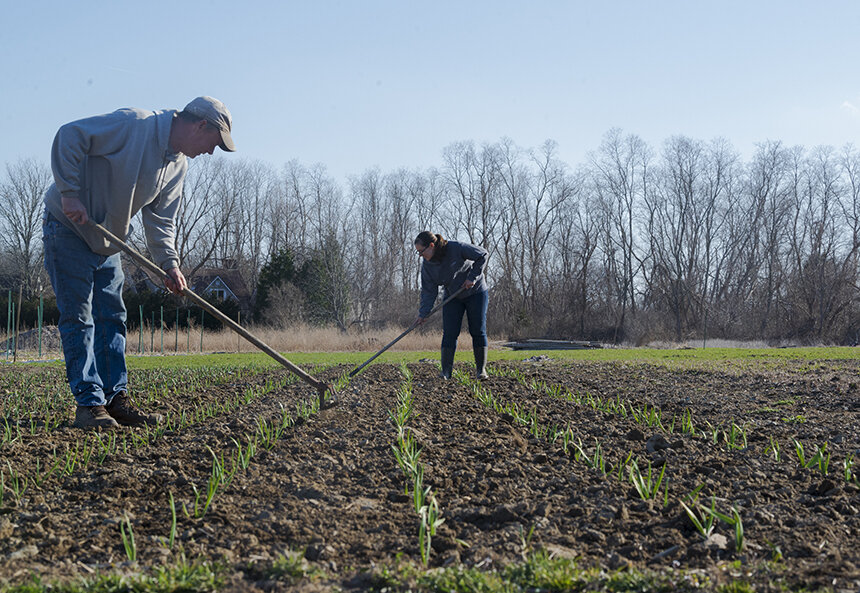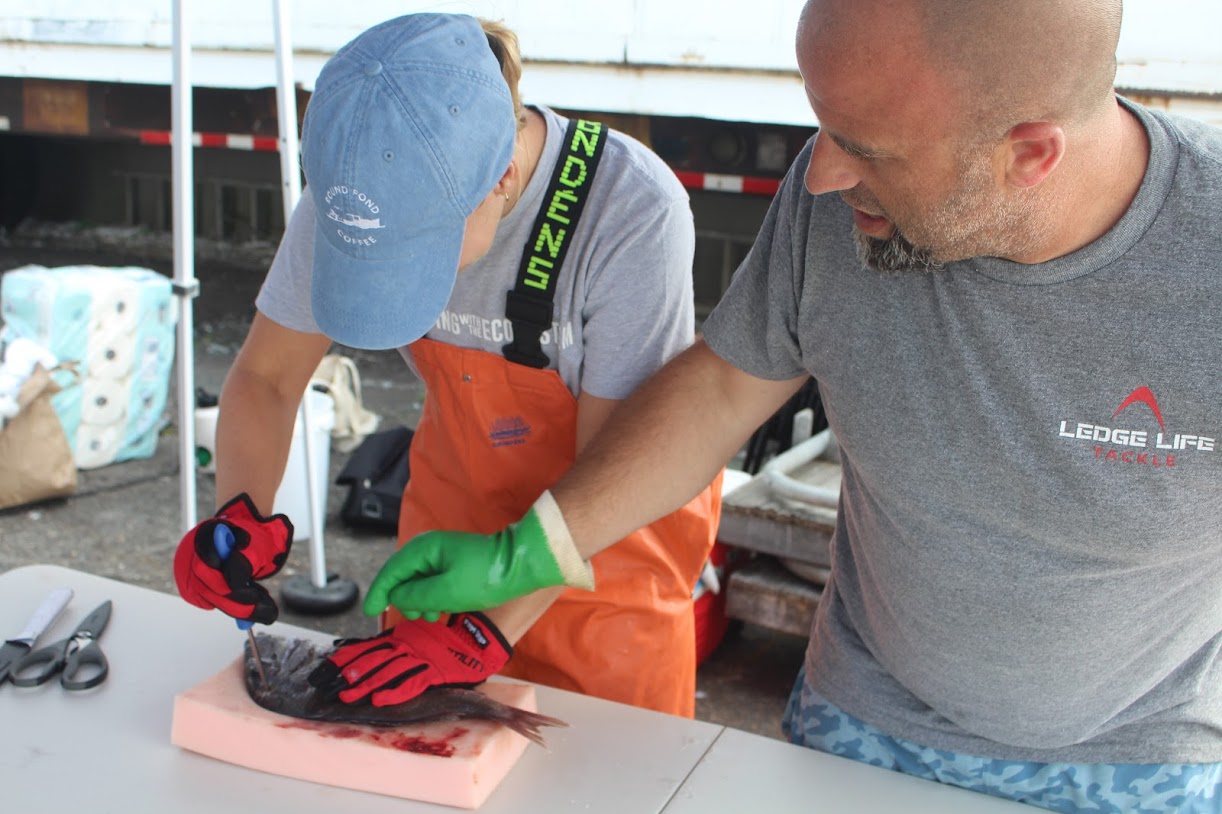URI Professor to Map Urban Food Networks to Grow Local Produce
April 14, 2023
KINGSTON, R.I. — John Taylor, associate professor of agroecology at the University of Rhode Island, has received a grant to fund a project that will bring together an array of food system research taking place at URI.
The $973,479 award from the National Institute of Food and Agriculture was one of 12 to receive funding through the institute’s Urban, Indoor, and Other Emerging Agricultural Production Research, Education and Extension Initiative. The agency’s $9.4 million in grants are part of a broad U.S. Department of Agriculture investment in urban agriculture, funding research that addresses key problems in urban, indoor, and emerging agricultural systems.
The project will bring together Taylor’s research with immigrant gardeners and farmers in Rhode Island, Julie Keller’s agriculture-focused work with diverse communities, Melva Treviño Peña’s work with immigrant fishers, and Patrick Baur’s work on food safety and urban agriculture.
Gardening and farming in the urban environment has long been the focus of Taylor’s research. He received his Ph.D. in crop sciences at the University of Illinois Urbana-Champaign, where he conducted research on urban agriculture in Chicago. He mapped urban food across the city, from gardens in backyards and vacant lots to urban farms.
Although always a part of city life, urban agriculture has recently attracted increased attention in the United States, as a strategy for stimulating economic development, increasing food security and access, and combating obesity and diabetes.
Food justice is about addressing access to healthy and affordable food for low-wealth and marginalized communities. It seeks to ensure the benefits and risks of where, what, and how food is grown, accessed, distributed, and transported are shared equally.
Many neighborhoods in metropolitan areas, including in Rhode Island’s urban core, have little to no access to fresh food or full-service grocery stores — a situation often referred to as living in a “food desert.” Other marginalized communities are surrounded by “food swamps,” areas in which a large amount of processed foods, such as fast food and convenience-store fare, is available with limited healthy options.
One solution to this environmental justice problem is to encourage the growing of local food.
Developing effective policies and programs demands as a first step the accurate mapping of existing urban agriculture sites, according to Taylor. He hopes to provide that template.
Taylor and colleagues at URI, the University of Maryland, and the University of the District of Columbia will soon begin mapping the alternative food provisioning networks of immigrant communities and communities of color in three East Coast cities — Providence, Baltimore, and Washington, D.C. — to better understand these networks.
He hopes this transdisciplinary research will reap new information about alternative food provisioning networks in the Northeast, evaluating their impact on food system outcomes, and identifying opportunities for policy support.
Outreach to urban growers and coastal fishers in each city will start this spring.
At URI, Taylor’s “home garden” is a quarter-acre plot at the Gardiner Crops Research Center on Thirty Acre Pond Road at the bottom of the Kingston Campus. His plot, visible from Plains Road, represents in microcosm the immigrant foodways he will be studying for his research during the next few years.
At URI’s Agrobiodiversity Learning Garden and Food Forest, he grows crops that are integral to the food traditions of Rhode Island’s diverse communities: South American sweet potatoes, Mexican tomatillos, Haitian tomatoes, Mediterranean herbs, Asian bok choy, and produce from an African diaspora garden. Taylor tends the garden with students in URI’s Plant Sciences and Sustainable Agriculture and Food Systems programs and URI master gardeners, demonstrating how sustainable farming reinforces community-building.
With the learning garden, he follows a lead set by generations of immigrants who moved to Providence and cities like it, bringing their growing practices, and sometimes seeds, with them.
“My diverse personal, professional, and educational experiences inform my teaching and research,” Taylor said.
A descendant of five generations of Pennsylvania farmers, he grew up on a 100-acre integrated crop-livestock farm near Pittsburgh. Taylor began gardening at the age of 6 and started a market garden while in high school. He left the farm to attend the University of Chicago, where he studied philosophy. He then managed federal education studies for 10 years before returning to school to study horticulture and practice landscape architecture.




I love this story. I am an employee at the local RI Farm Service Agency, part of USDA. I’d love to help in anyway I can.
We need to encourage and foster the growth of family farms. Family farmers have a better respect for the land than factory farms and are more likely to be organic or practice Integrated pest management.
Remember buy local and support our local farmers!